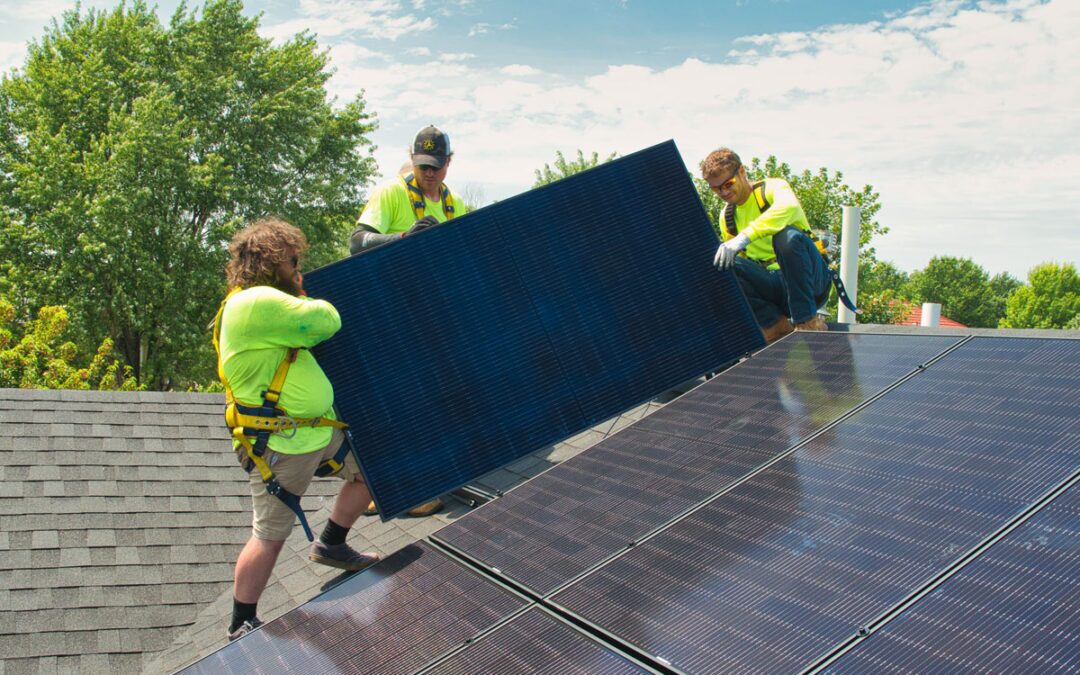The “Big Beautiful Bill” was signed into law on Independence Day, cutting the 30% residential solar tax credit off on December 31, 2025, nearly ten years earlier than originally planned.
Under the Inflation Reduction Act, the federal residential solar tax credit was set to remain at 30% through 2034. Instead, it will now disappear entirely on January 1, 2026, creating a compressed timeline that is expected to disrupt the solar market and increase costs for homeowners who wait too long.
For homeowners thinking about going solar, the math is now simple: move forward before the end of the year and save thousands or wait and pay more for a solar panel system in 2026.
At Good Energy Solutions, we believe in helping homeowners make smart energy decisions, even as policies change. If you’ve been considering solar, NOW is the time to act. With a rush of homeowners wanting to go solar before the federal tax credit expires, our crews are working six days a week to accommodate the increased demand.
By cutting the residential solar tax credit, Congress is removing the main tool that helps families reduce their dependence on the grid, just as electricity demand surges and utility bills continue to rise.
AI data centers and new factories are driving record-breaking electricity demand, with consumption projected to grow by 130% by 2030. To meet this demand, utilities are expanding power generation and upgrading grid infrastructure, costs that are passed directly to homeowners through higher electric rates. Evergy customers have seen this firsthand with the recent 8.6% rate hike to fund new energy projects, on top of another proposed 15% rate hike already in the works.
Rooftop solar can help offset or even avoid the need for costly infrastructure investments. It’s one of the fastest, most effective ways to add clean electricity where it’s needed most. Yet, even as more massive data centers come online across the country, Congress has ended the primary incentive for this grid-supporting technology. Without widespread distributed solar generation to help balance the load, the grid becomes more vulnerable to brownouts, rolling blackouts, and load-shedding requests during periods of peak demand.
Losing the federal solar tax credit makes this even more costly for homeowners who could have locked in stable energy costs with their own solar systems, while helping keep the grid more resilient in the face of surging demand.
In order to have your solar system installed by Good Energy Solutions before the deadline, you’ll need to have a signed contract for your project by August 31st.
Our solar team is standing by, ready to help you:
- Design a custom system: We’ll make sure your solar system is sized correctly for your home’s energy usage and budget.
- Maximize your incentives: Our team will help you navigate federal tax credits and any local or utility rebates that are still available. If you are not able to have solar installed by the end of 2025, we offer other solutions to help make solar an affordable option in 2026.
- Install to the highest standards: Our team members hold the highest certifications in the solar and energy storage industry and follow all local codes to ensure your system delivers reliable savings for decades to come.
SEE IF YOUR HOME OR BUSINESS IS A GOOD MATCH FOR SOLAR
GET A FREE QUOTE
 Our mission at Good Energy Solutions is to provide our customers with honest, real solutions to reduce their fossil fuel consumption and lower their long term energy costs. Our combination of hands-on experience, education, and outstanding customer service make our company the clear choice to help you achieve your energy goals.
Our mission at Good Energy Solutions is to provide our customers with honest, real solutions to reduce their fossil fuel consumption and lower their long term energy costs. Our combination of hands-on experience, education, and outstanding customer service make our company the clear choice to help you achieve your energy goals.
Founded in 2007 by Kevin and Shana Good, Good Energy Solutions has earned a reputation for our expert reliable service, long workmanship warranties, and quality commercial and residential solar installations.
We are engineers and craftsmen designing for efficiency while keeping aesthetics and longevity in mind. Because of our installation quality and customer service, Good Energy Solutions' solar panel systems feature some of the longest product and service warranties in Kansas and Missouri. Also, we have more NABCEP® Certified Solar Professionals on staff than any other company in Kansas or Missouri. To achieve this certification, PV installers must demonstrate that they possess extensive solar PV installation experience, have received advanced training, and passed the rigorous NABCEP certification exam.
If you would like to know more about solar power for your home or business, contact us here.

